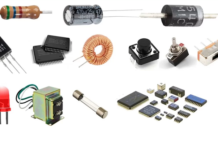For most high school and college students, December is the month of studying…and then January is the month of studying some more. The dreaded word “finals” echoes across campuses with the eerie quality of impending doom.
While written finals are stressful for sure, there are strategies you can use to help you master the month of December and massively improve your semester grades.
STEP ONE: Give Yourself a Lot of Time to Prepare
You’ll need to be thinking ahead from the moment you receive a research assignment. Start organizing materials several weeks before the paper is due, and then begin writing at least a week before it is due so that you can meter out how much you have to write each day. Generally, plan to not write more than 5 pages per day.
Some people might prefer to write a paper in one or two goes, which is fine, too. However, if that’s the case for you, make sure that you’ve organized weeks ahead of time which papers you’ll need to write, and when. Reviewing your notes and organizing your research ahead of time ensures that you’ll have the opportunity to attend office hours to ask your teacher/professor questions around the essay formatting and specifics of your research (your pre-planning will also earn you invaluable brownie points!)
If your final will be an in-class essay, and you don’t know the topic beforehand, reviewing your notes early will enable you to have mini-plans for various possible topics already preserved in your brain.
STEP TWO: Organize Your Time & Your Notes
Organize your research so that you complete one assignment at a time. This will prevent you from feeling completely overwhelmed. Organizing your notes by subject, topic and subtopic can help you review specific topics at once, also allowing you to segment the work that you’re doing.
If your notes are on a computer, organize them into folders. If you share notes with others, make copies of notes so that you can specify topics. Convince your study group to start early, and invite everyone to share your system of topic organization, so that your group work will be as efficient as possible.
Typed notes are also handy for auditory learners, who likely will gain a lot from copying their notes into software like NoteVibes that will read the notes out to you, leaving you free to play/pause when you’d like, and to organize ideas through listening. Visual learners might also benefit from this practice, as they can listen to their notes like a lecture while creating graphic organizers to concretize their thoughts.
STEP THREE: Review your work and ace that paper!
Once you’ve written an initial draft, make sure that you have a peer check it. Another eye can often catch things we don’t see! Ask your friend to check that you have appropriate grammar, sentence structures, and overall flow. Check it one more time, and turn it in. Then, sleep! You deserve it.


















